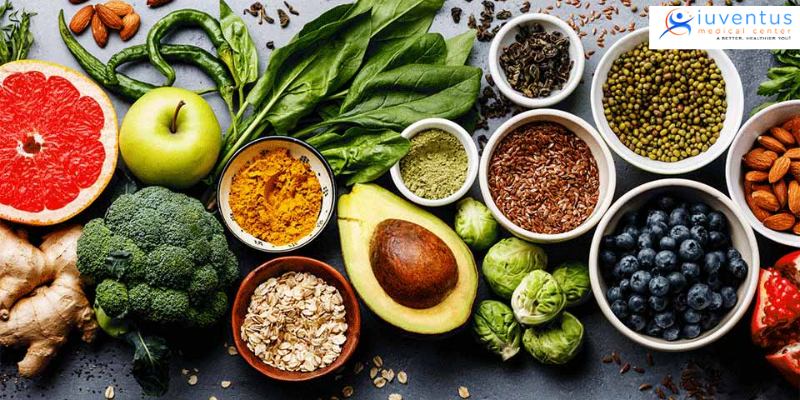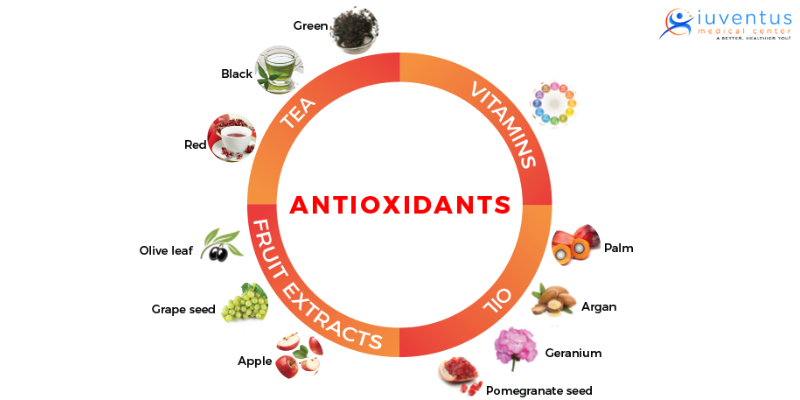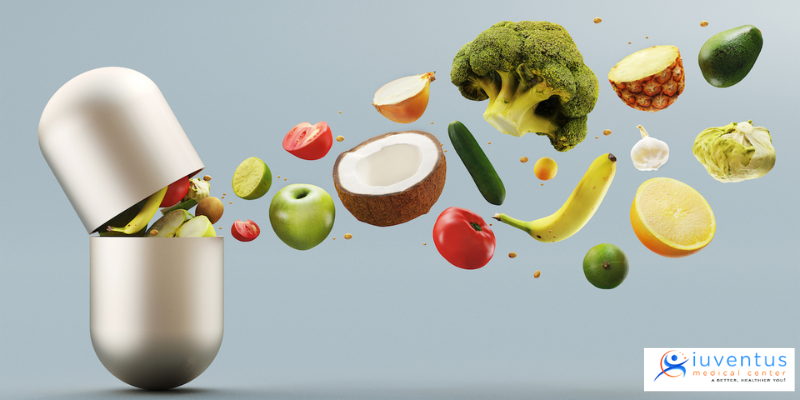Antioxidants are protective compounds that the body needs to help fight off unstable molecules or free radicals. Free radicals are not unusable substances. They are created when the atoms in the body gain or lose electrons. They also support a number of biological functions, including the body’s cell division.
Cells can communicate with one another thanks to free radicals, which helps the body fight infection. Free radicals are an issue, though, when they build up inside the body. Antioxidants aid in preventing the buildup of unstable chemicals that could harm the body’s cells. There are several antioxidants, and they each have different nutritional and physiological functions, as seen here:
Antioxidants aid in the prevention or delay of cell-damaging effects brought on by free radicals. Because the body reacts to pressure or environmental variables, free radical production starts. Free radicals build up in the body in large numbers. They harm cells, resulting in diseases like diabetes, heart disease, cancer, and high blood pressure.
Vitamins from many vitamin families, including Vitamin E, C, A, and others, are members of the antioxidant family. These vitamins are good for the body because they support cell defense. Sources of antioxidants can be synthetic or natural, notably in plant-based meals.
The body can produce exogenous and endogenous antioxidants. But, if the body fails to remove or process unstable molecules as it should, it can result in oxidative stress reactions. Stress can cause damaging problems to the body and cell function.
Free radicals are otherwise called Reactive Oxygen Species (ROS). They increase in the body, including external factors such as pollution, cigarette smoke, exposure to UV rays, or internal factors such as inflammation.
According to proven sources, oxidative stress is connected to arthritis, heart diseases, stroke, Parkinson’s disease, immune deficiency, respiratory diseases, cancer, emphysema, inflammation, and other blood-related conditions like ischemia. Antioxidants support the neutralization of unstable molecules in the body, thereby improving an individual’s health.
Antioxidants can slow down or stop free radicals from building up in the body. Therefore, they have the power to reduce or prevent the odds of certain health conditions.
Many research sources and some individuals argue about the role of Antioxidants in reducing the chances of heart disease in people. According to research, people who consume a lot of vegetables and fruits are less likely to suffer from stroke and heart disease due to the presence of antioxidants in these food substances.
Therefore, food-based antioxidants are essential for boosting the functions of the heart. However, there is no further research to prove that antioxidants in supplements have little or no benefits in doing the same.
People who eat vitamin-enriched food substances are likely to have good eyesight. One of the most common reasons for permanent loss of vision in adults above 60 is Age-related Macular Degeneration (AMD).
AMD occurs when the macula, an essential tissue deep in the back of the eye, starts wearing away. If it continues to wear away, it leads to vision loss. Eating more antioxidant food or supplements may help reduce the chances of macular degeneration by up to 25% or 30%. However, if you are already suffering from AMD or other eye-related problems, antioxidants can help you improve your vision.
Antioxidants can be found in different vitamin and mineralized foods and supplements as follows:
It is sufficient in orange foods, including:
A few green plants or vegetables also contain high amounts of beta-carotene antioxidants, including:
These plants also contain high amounts of Lutein antioxidants.
It can be found in vegetables and fruits with red, red-orange, or pink flesh. They include the following:
Nearly 80% to 90% of Lycopene in almost all American diets is derived from tomatoes.
it is sufficient in whole grain, and other food like:
It is found in some vegetables and sufficient in high concentrations in other food substances, including:
It mostly comes from almonds, but you can also find Vitamin E in the following:
Plant-based foods usually have higher concentrations of antioxidants than meats.
Berry products and Berry fruits are abundant in antioxidants, and they include:



